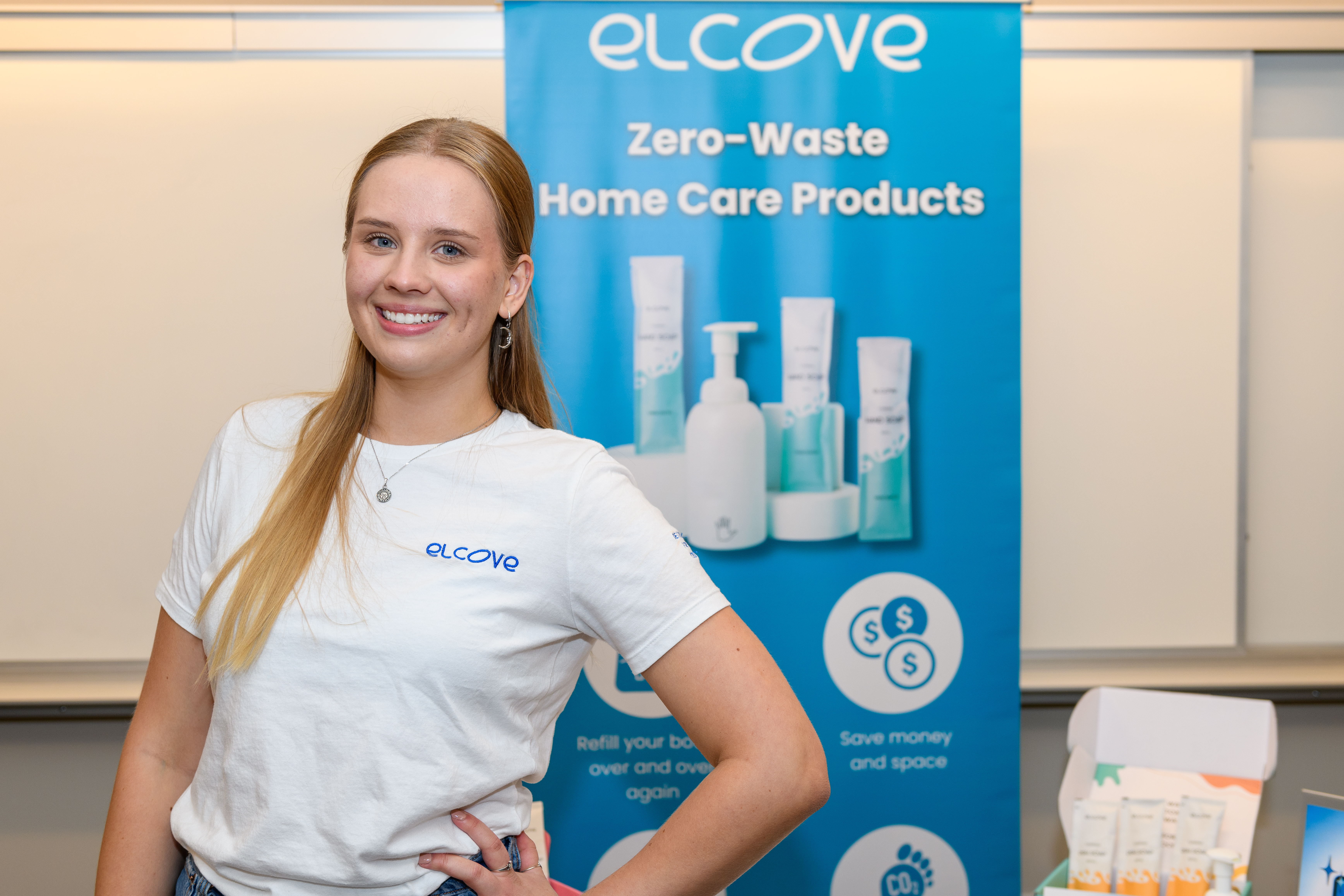GEM research consistently highlights the role of entrepreneurship education in contributing towards vibrant ecosystems that can empower founders to build sustainable, impactful businesses. Stacia Yefimenko’s journey at Babson College is one such example.
Armed with entrepreneurial skills from her education at Babson, she transformed a personal health challenge into a mission-driven company focused on sustainability. After struggling for years with severe allergies and asthma, Stacia discovered that everyday cleaning products were often filled with harmful chemicals – and that they contributed significantly to environmental waste. Recognising a gap in the market, she co-founded Elcove in 2021 to offer affordable non-toxic, eco-friendly cleaning and personal care solutions, minimising both human and environmental harm.
Sustainability is at the heart of Elcove’s operations. From compostable refill packaging to reusable aluminum bottles and sustainable shipping materials, every detail is designed with the full product lifecycle in mind.
"At Elcove, we focus on reducing waste and creating lasting impact at every step," Stacia explained.
Entrepreneurship education has been instrumental in Stacia’s success. She is quick to credit Babson’s Entrepreneurial Thought & Action, a proven methodology for developing the skill set and mindset needed to not just launch a new business, but also make change in an established company, lead a team, or create social impact.
“Babson taught me to approach everything with curiosity and an understanding that I can learn whatever I need to learn if I put my mind to it,” she said. “Entrepreneurship education is so important because when you're first starting out, there are a thousand different steps you could take and paths you could follow. Having a strong foundation – basic principles, guidelines, and the core values of how successful businesses operate – gives you something to carry with you at every stage of the journey.”
Also important is the role of mentors that Stacia has come in contact with through Babson’s programs.
"Learning from those who have walked the path before me saved invaluable time and helped me navigate challenges more strategically," she said.
As a woman entrepreneur, Stacia has also seen first-hand the barriers that female founders often face. She highlighted the importance of surrounding herself with supportive networks – particularly other women entrepreneurs who understand the unique challenges – and emphasised that mentorship has been critical in navigating these hurdles.
“The best support has been surrounding myself with other incredible female entrepreneurs; especially those who have been in my shoes and have been kind to mentor me throughout the entire process.”
She believes policymakers should design more accessible funding opportunities and meaningful support systems that address the root challenges women entrepreneurs face, not just surface-level solutions.
To date, Elcove has saved an estimated 34,000 plastic bottles from being thrown away and polluting our planet. Looking ahead, Stacia envisions expanding Elcove’s product offerings to create a one-stop shop for sustainable, non-toxic living. She also sees AI playing a greater role in streamlining operations, such as inventory planning and customer education.
Stacia’s story illustrates what GEM research shows time and again: entrepreneurship education and support systems play an important role in helping entrepreneurs launch companies that make a positive difference.

